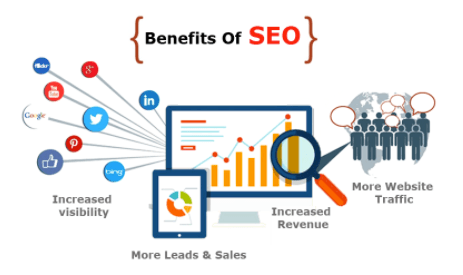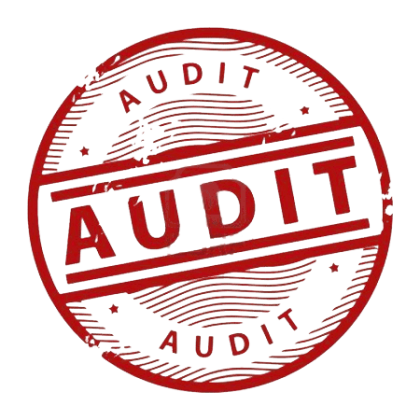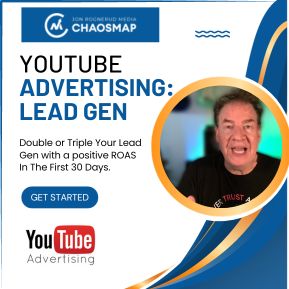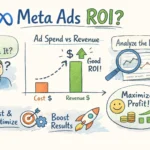Within the living medium as dynamic and ever-changing as the Internet, nothing needs more attention today than your website.
That includes your website health, your online business goals and what you are hoping to achieve.
You must consider the entire picture, which include strategic and tactical elements and adjusting to metrics from real-world user testing.

And, if you need consistent and converting traffic, there is nothing more trusted than SEO-driven, organic clicks that come from top search engine visibility.
And, there are over 200 factors that count into the search relevancy algorithm for Google.
For example, most business owners don’t know that the search engines look at freshness and recency of data. Plus, click metrics and user behavior now counts as one of several “new” important indicators for online success with search.
While many of these factors are not known, we’ve learned about most of them over the last decade that we’ve worked within the search and digital space.
A Comprehensive Forensic SEO Audit
After a questionnaire and interview questions, we create an audit for large websites, E-commerce and transaction based websites, which may include 100’s of thousands of pages, or a million+ pages.
The resulting document contains a detailed study of your
- domains,
- pages,
- content,
- backlinks,
- traffic patterns,
- usability,
- engagement,
- technology,
- infrastructure,
- search analytics (search console)
- overall search friendliness and on multiple devices (e.g. mobile)
- and much more
These are just a few, but are absolutely essential to understand and get right, in order to sustain long term visibility in search.
Review all the features and goals of your site and get a comprehensive list with inner-working details.
Then, begin to develop a proper go-forward SEO plan.
All the data points must not only be captured, but also be updated ongoing.
This is important, because you need to compare progress as things get implemented and fixed.
A system for continually monitoring changes in SERPs (search engine results pages) – it is paramount to all SEO work.
Go Beyond “SEO”
Consider the soft, non-technical aspects of an SEO audit. It’s part of a wider scheme, namely the overall company marketing and campaign intent. You can find and solve technical issues all day long, but SEO is much more than that.
SEO is about the inclusion of the total business eco-system.
That also means “user experience” and focusing on the core goal: serving the visitor’s initial request. This is what intent is all about.
As an SEO expert, you must deeply know how websites, marketing, business and the web works. Your web pages with their content assets must serve, inform, entertain and educate the audience as they move along the customer journey.
REMINDER: Simple technical updates or content changes can have a ripple effect through larger sites. Be careful!
Here’s a top level view of broad categories within SEO forensic audits:
Branding and Market Conditions
Trustworthiness, site links, title tags, headline tags, competitor keywords (branded & non-branded), traffic (mobile & desktop), web analytics (Google analytics audit) and call to action.
Onsite SEO
Penalties, keyword plans and content structure (including duplication issues), server issues, crawling errors, internal links, broken internal links, robots management, page speed / timings (including geo-locations, connection speeds & browser types), image optimization, SSL, AMP, mobile friendliness, canonicalization and International SEO. Focus on user experience and relevancy.
Learn more about tools and strategies to start an inquiry on SEO audit
Offsite SEO
Penalty checks, back link audit, broken links, site / domain quality, social, reviews and citations, bad neighborhood linking, disavows, blacklists, link diversity and link growth / frequency.
TIP: Learn more about how to use blogging can be used as one of the popular backlink-building, traffic-driving, SEO off-page strategies.
The Benefits of the SEO Audit

NUMBER 1:
Some of the most important are finding out where and how to get more quality traffic, discovery of how traffic may have dropped (quickly or over time), or if any past penalties (Panda, Penguin) is currently holding your site back. You need clarity and focus on keywords, content and analyzing the right engagement metrics. (Visitor trends, bounce rates, conversion rates, time on site, etc.)
NUMBER 2:
You may be thinking about an upcoming domain migration, or have recently redesigned or migrated the site(s) and lost rankings and traffic and need to understand what happened, and how to fix it …FAST.
NUMBER 3:
You may be considering moving to SSL across single or multiple domains, and must understand the whole picture, the impact – while minimizing the fall-out.
NUMBER 4:
You may be launching a series of websites or needing to re-boot an existing one — and require a clear path and plan on how to get more converting traffic while building a trusted brand.
NUMBER 5:
Or, you’re trying to understand what products to keep or filter out from search engines based on traffic and sales. This also considers profits and is an important strategic consideration. This discussion goes beyond just “being #1 in search results” which is not always what you need.
NUMBER 6:
Sales! Considering revenue is critical and real sales is what your CFO is looking for, not rankings (although your marketing team may initially feel differently!)
And, if you use the popular WordPress platform there are likely many search engine blocks preventing you from top rankings and converting traffic – right now!

Building a Website On Strange Land?
Imagine building a beautiful, pretty house (your website) on a major earthquake fault line or a sloped hill, and you don’t even know it.
It’s a disaster waiting to happen. Revealing all the issues along with a detailed explanation, education and plan about all the potential concerns, would be essential.
You already understand that you must have a user-and-search friendly site, and that includes BOTH mobile and desktop.
All pages and content must be specific, measurable and have unique quality content that serves the right audience and that is socially ready and aware.
When you start with the 7 components below – all search engines will reward you with a higher position in natural search results.
The art and science of SEO (search engine optimization) is simple as they say, but not easy.
And, for larger sites and SEO website migrations, things can get very complex quickly.
7 Action Steps for Better Search Results:
This is not a comprehensive audit checklist, but a starting place to ask questions.
 SEO is more than just creating a page or website and deploying it.
SEO is more than just creating a page or website and deploying it.
You must think strategically about keywords, content, users and link building opportunities.
It’s also important to address all the technical issues – from any server side issues to the HTML code and possible robots blocking.
As mentioned, engagement metrics are essential, and you must understand your analytics to a deeper detail.
Google specifically is looking at user behavior and click patterns. (e.g.: ‘Did the visitor to the web page click back or off the page immediately?’, ‘did the page serve and meet the needs of the visitor’, etc.)
Begin with these 7 questions:
- Keywords – do you have keywords and phrases that people search for on your pages? Did you analyze your market and perform keyword research? Are they included naturally throughout your page(s)? Relevancy is key.
- Links – are you creating enough quality content to attract links from others? Link quality matters more than link quantity.
- Anchor text links – are you receiving links with “keyword phrases” in your inbound link profiles? For example, “Bankruptcy Attorney New York” is better than “Click Here” (Note: However, don’t over-use this. Balance it with natural backlink profile).
- Popularity – how “popular” is the page that is linking back to you? How relevant is the exterior page and link? If your theme is about topic “X”, get more relevant links from within that community
- How do the visitors see your site? How favorable is that view? Make sure your traffic and click-through-data matches the search query, and that you don’t have a high bounce-rate. Both desktop and mobile are crucial in this review.
- Are you including social media? Search engines (indirectly) use signals from activity on platforms like Twitter, Facebook, Google+ and others. How well is that traffic converting?
- Page speed and website up-time. Make sure you are hosting with a professional grade hosting partner, and that you have fast load times of pages and all online assets (code, images, documents, etc)
Finally, ensure you are found not only for informational keywords, but also for your buying / transactional keywords.
Remember, keywords must match your pages and content topics.
You can use the Free Google Keyword Planner Tool to get a sense for the market and levels of competitiveness.
Other tools like Buzzsump Questin Analyzer and AnswerThePublic will help you understand what your audience is searching for. You’ll also create new ideas for content for your own website.
You should already have web tracking scripts from Google Analytics installed, and linked up the Google Search Console.
 Here at Chaosmap, when we look at doing an SEO audit for your website – we look at all these factors, indexation issues, crawling issues and as many as 150 checkpoints during our audit process.
Here at Chaosmap, when we look at doing an SEO audit for your website – we look at all these factors, indexation issues, crawling issues and as many as 150 checkpoints during our audit process.
We use free and paid SEO tools including proprietary, internal systems and software to gather metrics that we manually add to our 150+ page report.
Depending on the size of the site, and issues found, SEO audits can take anywhere from 2-4 weeks.
A detailed, and in-depth Website Analytics Audit is also highly recommended.
This audit will ensure that your “website house” will be designed and constructed on solid ground.
It will create a high-performance asset for your company. Hopefully, for a long time – and with an updatable implementation plan you can use with your marketing team.
Want Us To Help Take A Deeper Look?
CONTACT US when you want to get advanced and detailed information to 10x your sales and improve your overall website performance with SEO.
Jon Rognerud and Chaosmap work with Fortune 500 companies, associations and entrepreneurs to create digital traffic strategies that scale up members, customers, leads and sales with profitable returns. Mr. Rognerud wrote a best-selling book (Buy On Amazon), “The Ultimate Guide To Optimizing Your Website” (Entrepreneur). Connect directly here.







